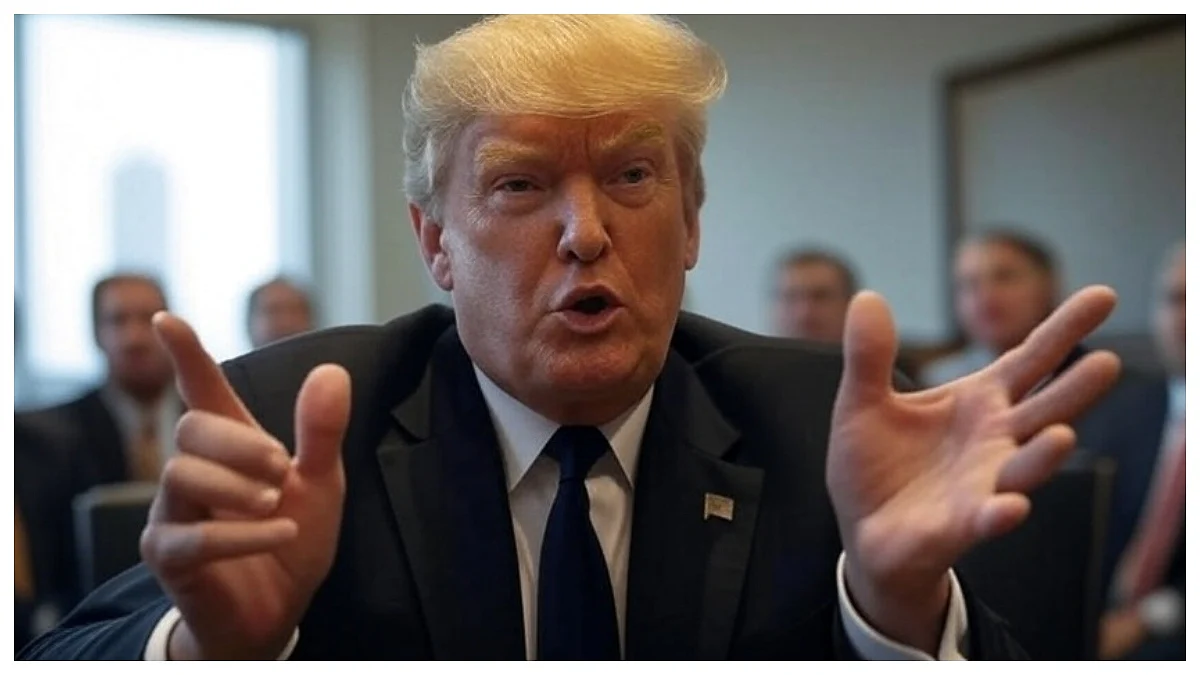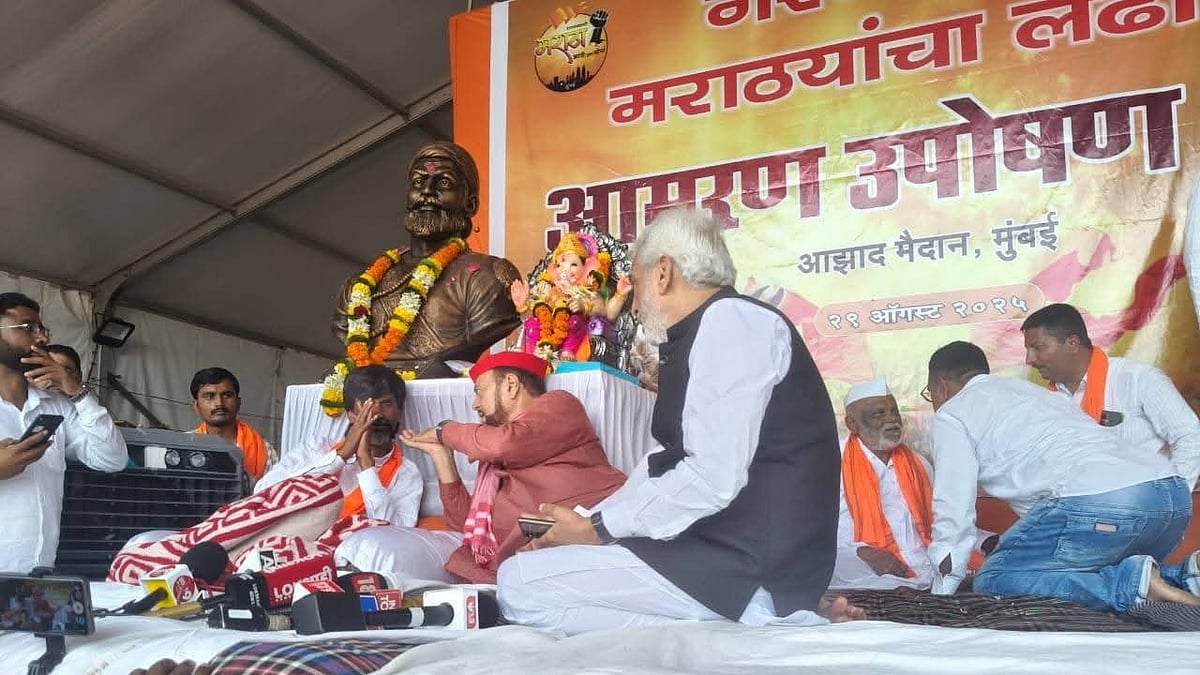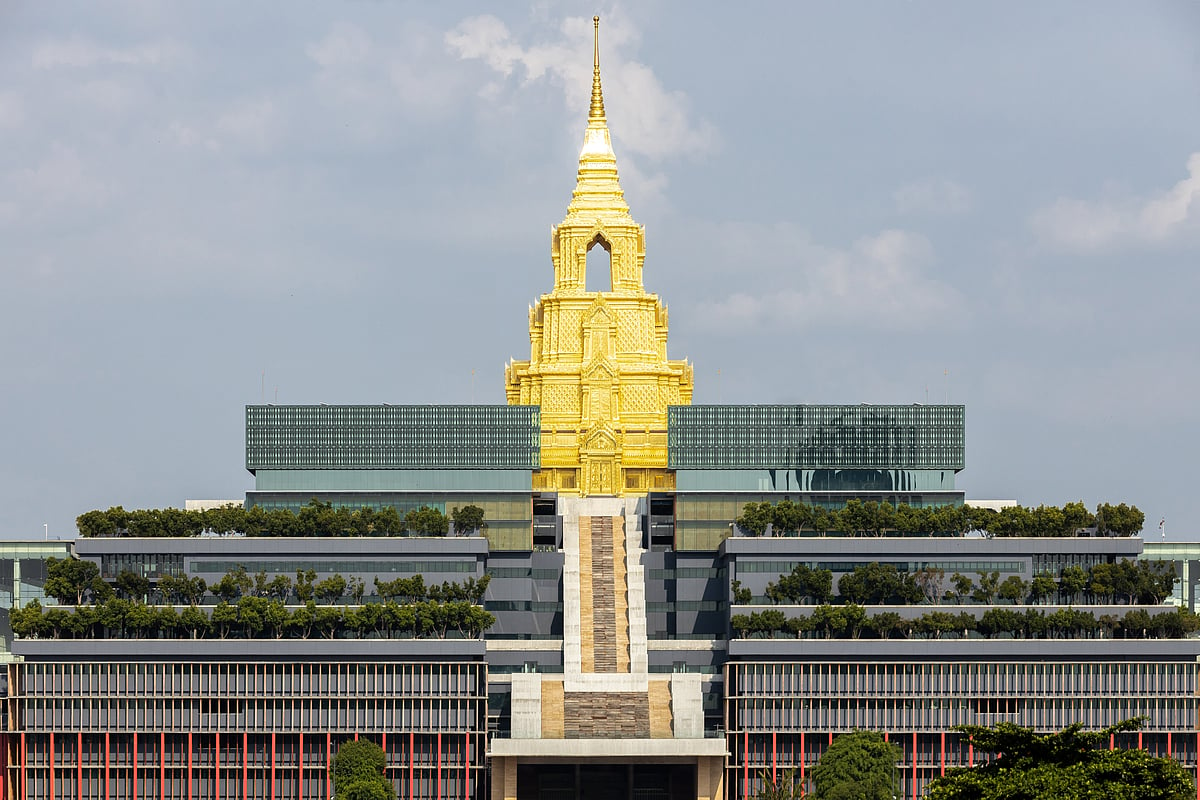British historian and politician Lord Acton famously pronounced, “Great men are almost always bad men, even when they exercise influence and not authority, still more when you add the tendency or the certainty of corruption by authority." If we take ‘Great’ here to mean influence, the exercise of authority, and a lasting impact long after he relinquished any formal post; this is an apt description of Henry Kissinger. Few individuals have had a similar impact on global events and influence as a US policy-maker who were not elected politicians- certainly, no subsequent incumbent Secretary of State or National Security Advisor, has ever possessed his clout in any US administration since. This influence gained him deep access to the corridors of power, being able to directly meet and advise US Presidents from Nixon onwards; while both the current Secretary of State, Anthony Blinken, and Secretary of Defence, Lloyd Austin have acknowledged their debt to him. Yet, few figures have also been as polarising; attracting such opprobrium from a range of public intellectuals; accusing him of war crimes, crimes against humanity, genocide, overthrowing democratically elected regimes, launching illegal wars, and sanctioning brutal invasions and military occupations by American allies. While one should avoid Manichean judgements, that attribute causation to individuals who are, after all, products of their time and environment, so representative of them as well as contributing to them; the respect accorded to Kissinger substantially brushes over several troubling aspects of his career and his legacy.
His personal history as a young boy, being a Jewish refugee fleeing Nazi Germany and then as a US soldier observing the fall and then participating as an intelligence officer in the administration of a postwar Germany, characterised his world view. This involved a distrust of mass movements, whether of the Left or the Right, as threats to democracy and potentially paving the way to totalitarianism and a preference for state policy to be set by self-regarding intellectual elites insulated from the petty everyday demands of democratic pressures. Lastly, there was the belief that what mattered ultimately was the ability to wield power or if not able to do so directly, be close to those who do and influence their actions. His much-cited comment on one of his heroes Prince Metternich of Austria as someone “who excelled in manipulation, not construction” captures this very well. Contempt for the failure of Weimar liberals and liberalism and the observation of how many well-meaning idealists had ended up in Nazi extermination camps; cemented this staunch belief that power more than ideas or morals was essential for stability and survival in a hostile world. “Covert action should not be confused with missionary work” was how he justified the US abandonment of the Kurds to Saddam Hussein’s regime; after initially fomenting a rebellion against Baghdad and supplying them with funds and weapons; in his testimony before the House Intelligence Committee of Congress. More cynical critics would describe this as an accurate categorisation of his foreign policy, not just covert policy.
Yet these same traits proved extremely limiting as well as damaging. The distrust of popular movements, allowed him to invoke the spectre of Nazism to justify all sorts of misjudgements and misdeeds- whether it was describing anti-Vietnam war protestors as Nazis to suppressing any movement in the Global South from East Timor to Chile that were viewed as threats to US power. In a pattern that was to be repeated again and again; these also proved futile, as the Indonesian occupation of East Timor did come to an end, albeit at the cost of over 100,000 Timorese lives, roughly 20% of the pre-invasion population; and Pinochet’s regime in Chile was replaced with democracy but not without the killing of over 3,000 dissidents and the further internment and torture of at least another 80,000 Chileans. This inability to appreciate the role of social movements and democratic domestic politics of countries and to see everything through a reductive foreign policy lens, led to a myopic vision that imposed a huge cost. As the New York Times put it euphemistically in its obituary, for him “there were superpowers and there was everything else, and it was the everything else that got him into trouble.”
His belief and desire to be close to the centres of power also had less than salubrious outcomes; from the funnelling of confidential information while within the Johnson administration in 1968 to the Nixon campaign, about the progress of secret peace negotiations with the North Vietnamese, enabled Nixon to persuade the South Vietnamese to withhold their agreement to the peace talks, arguing that they would get a better deal with him in office, effectively sabotaging any progress; a prioritising of domestic electoral jockeying over ostensible national security interests; which presaged the similar manoeuvre the Reagan campaign inflicted on the Carter administration a decade later over the Iran hostage affair- the so-called “October Surprise”. The need to keep the expansion of the Vietnam war to the Cambodian and Laotian theatres’ secret encouraged the deep-seated paranoia within the Nixon White house, especially as leaks and the publishing of the Pentagon Papers unravelled any confidence the public had in the US’s capacity to not only win the war but even be aware of realities on the ground. This pervasive need for secrecy and fear of leaks, led to a toxic atmosphere of suspicion and distrust within the Nixon administration, and for Kissinger to illegally order the tapping over distrust a dozen of his own subordinates by the FBI- a prolific use of this discretionary power that eventually led to it being taken away from him by Nixon and given to the Attorney-General John Mitchell. While he was not personally involved in the scandal that eventually brought Nixon down, the path to Watergate was set.
Much has been made of his academic credentials and his study of political theory; including Kant and the influence of German Idealism on his thought and the concept that our perceptions influence reality. For a student of this school of philosophy, however, he overlooks another key insight which proves to be limiting- namely that as much as we influence the world through acting on it and shaping it through our actions, the world also acts on us and the consequences of our actions and the choices we make, have a role in shaping ourselves as well. This is where Acton’s other famous dictum about how “power corrupts and absolute power, corrupts absolutely” drives home. Without judicious self-restraint, self-questioning through doubt, and an awareness that the exercise of power through political authority is inherently corrupting unless it is bound by these restraints; it is inevitable that those who exercise such power will end up in the Actonian cul-de-sac. In Kissinger, such restraints were largely, some of his critics would say completely, lacking, with the attendant consequences.
A couple of the most notorious and sordid examples of the use of this power and its corrupting effects is illustrative. The most infamous are the extended peace negotiations with North Vietnam; Kissinger had realised by 1967 that the war in South Vietnam was unwinnable, what remained was to execute a strategy that would allow the US to withdraw ‘’with honour”. However, not only did he play a role in sabotaging the Johnson administration’s last-ditch effort reach a peace deal with the North Vietnamese in 1968 by colluding with the Nixon campaign; despite Nixon being elected in that year on the promise of having a “secret plan” to end the war with American credibility intact, it took another five years for such an agreement to be finalised. The terms of the Paris talks which concluded America’s direct involvement in the war; were not substantially different from what was on offer three years ago. Kissinger gambled that applying more pressure though extensive bombing campaigns in neighbouring Cambodia and Laos as well as heavy bombing of the North would improve the terms of the deal for the US and weaken North Vietnamese resolve, bringing them to the negotiating table sooner and more willing to accept US demands. It did not. What it did do was extend the war by several years and extract a huge toll in terms of lives, mostly of innocent civilians. The Cambodian bombing campaign, by Kissinger’s own admission resulted in at least 50,000 casualties; other assessments put the figure at 150,000. It achieved none of its stated aims; as the North Vietnamese supply trail into South Vietnam and North Vietnamese forces based in Cambodia escaped the bombing campaign largely intact. What it did do, was destabilise the existing regime in Phnom Penh and increase significantly support for the Khmer Rouge-led insurgency, allowing them to take power several years later. The Pol Pot regime of the Khmer Rouge was responsible for widescale human rights abuses and repression as well as one of the worst genocides of the 20th century, killing over 2 million Cambodians out of a population of 8 million; it was only overthrown from its bloody reign in power by a Vietnamese invasion in 1979, leading to another devastating war that raged for years. This bears a lasting legacy to this day, as Cambodia is effectively been ruled by Hun Sen a former Khmer Rouge leader, since 1998; one of the world’s longest serving autocrats; whose government is guilty of numerous human rights abuses, killing hundreds of opposition figures and suppressing any democratic dissent. International rights organisations have stated that he has turned Cambodia into an authoritarian one-party state, that shows few signs of weakening.
The revelation that the US had been bombing Laos since 1964, discovered by several senators, led to angry complaints about a ‘’secret war’ being waged in Laos; Kissinger’s statement admitting to the bombing but claiming that "No American stationed in Laos has ever been killed in ground combat operations", was itself shown to be another lie, when two days later it emerged that a US Army captain had died in fighting within Laos. The Pentagon was forced to admit that since 1969 a further 26 US servicemen had been killed in action while in Laos; Kissinger’s response to this was to claim that he had not in fact lied as arguing that all American personnel killed in Laos were in "hot pursuit" when chasing the enemy from South Vietnam into Laos and not actually stationed there. The brazen effrontery and legal sophistry in putting forward such arguments were typical of the Nixon White House in general and of Kissinger’s unwillingness to accept any responsibility for any mistake however small, in particular.
Kissinger’s belief that the North Vietnamese could be pressurised into accepting peace terms more favourable to the US; was instrumental in the carpet-bombing campaigns authorised by Nixon. The belief that North Vietnamese willpower could be weakened by such campaigns proved unfounded; leading Kissinger to exclaim in one of his outbursts that “I can’t believe that a fourth-rate power like North Vietnam doesn’t have a breaking point,” Apart from the deleterious moral implications; the fact that someone who prided themselves on being a realist; could not understand the enemy and the depth of their determination as well as ability to take punishment; indicates that his worldview was based less on realpolitik than on a subjective belief that the ability to wield enormous power, was in itself enough to achieve grand strategic objectives; the little peoples like the North Vietnamese were expected to give way. It is also a sign of the Orientalism and sublated racism of such a world-view, which Joseph Conrad captured brilliantly in his Heart of Darkness, when he described European colonialism as “The conquest of the earth, which mostly means the taking it away from those who have a different complexion or slightly flatter noses than ourselves, is not a pretty thing when you look into it too much.” In the end, it was not the North Vietnamese that did bend but the Americans; and the Paris Peace Accords were signed in 1973 on terms which were not substantially different on offer several years earlier. A Kissinger aide at the time, John Negroponte, commented sarcastically that "we bombed them into accepting our concessions." A remark that Kissinger never forgave him for.
West Pakistan’s murderously genocidal campaign in East Pakistan in 1971; reveals another episode with Kissinger’s problematic and ill-advised use of power and influence. While the Pakistani military regime was a key strategic asset in facilitating one of the breakthroughs of the Nixon administration- the establishment of relations with China and so was regarded as a close ally of the US; this relationship was not parleyed into any wise counsel or influence. Kissinger did little to advise Yahya Khan on how to deal with the outcome of the 1970 elections that gave Sheikh Mujib a majority in the legislature and instead chose to back the dictator when under Operation Searchlight, a brutal crackdown ostensibly against separatists in the Eastern wing and the Awami League quickly descended into a full-blown state-backed pogrom of genocidal force. Pakistani army units and regime-allied death squads killed indiscriminate numbers of civilians, including especially: Hindus, public intellectuals, students, and opposition party members; anybody whose loyalty was suspect was vulnerable to summary execution. The instrumentalization of mass rape as a method of warfare against civilian populations; reached incredibly disturbing heights, with over an estimated at least 200,000 women raped in a systematic campaign of orchestrated sexual violence in a matter or months. When made aware of the genocidal nature of the Pakistani army’s actions by the American Consul-General in Dhaka, Archer Blood; through the now-famous “Blood Telegram,” which took the courageous step of dissenting from official US govt policy due to massive violence being perpetrated in the country; Kissinger’s angry reaction was to ignore it and extend further support to Pakistan’s army through assurances and arms shipments. As Gary Bass’s excellent study shows, Kissinger’s reaction was driven less by realpolitik concerns and more by emotion; showing a particular hostility to Indira Gandhi and Indians and Bengalis in general. Kissinger’s sneering comment at the people who ‘’bleed for the dying Bengalis’’ is something indelibly and damningly inscribed into the historical record. Rather than seek to defuse the violence; Kissinger sought to expand it, by trying to involve the Chinese in countering Indian military action and as a last resort, dispatching the Seventh Fleet to the Indian Ocean, to deter the Indian forces. An incredible instance of the US military actually being deployed in support of a country carrying out genocidal violence.
When the inevitable fall of East Pakistan came; despite his best efforts to prevent it; Kissinger proudly declared to Nixon “You saved West Pakistan” hours after Pakistani forces surrendered completely in Dhaka. The truth, as is often the case where Kissinger is concerned, is rather different. The Indian cabinet was supportive of taking further military action against West Pakistan to press home their advantage; the Indian military leadership similarly wanted a brief to be able to launch operation to in the words of the then Chief of Army Staff “finish the job”; faced with this pressure both from the top civilian and military leadership; it was Indira Gandhi’s decision to cease hostilities and take no further action in the west; persuading both her cabinet and instructing her military commanders; who though disappointed acquiesced in the decision. In doing so, Indira Gandhi showed that simply having the power to do something, is not in itself a good enough reason to do so; and through this demonstrated the kind of enlightened self-restraint of a realist, that Kissinger himself, despite his pretensions, was so often lacking.
Lauded frequently even now for his intelligence and ability; harsher judgements on Kissinger’s are few and far between but they are telling. President Obama, was one of the coolest towards him in person, after entering the White House and in a 2016 interview with The Atlantic said “We dropped more ordnance on Cambodia and Laos than on Europe in World War II, and yet, ultimately, Nixon withdrew, Kissinger went to Paris, and all we left behind was chaos, slaughter and authoritarian governments that finally, over time, have emerged from that hell.” Adding that while in office he was still trying to help countries “remove bombs that are still blowing off the legs of little kids. In what way did that strategy promote our interests?” The distinguished scholar of international law, Richard Falk, acerbically noted that “his extraordinary capacity to be repeatedly wrong about almost every major foreign policy decision made by the U.S. Government over the course of the last half-century.” These speak to a more balanced assessment of Kissinger’s record that indicate not only were his decisions frequently wrong in terms of American national interest; but that they were wrong in terms of the assumptions they made and the predictions they estimated would happen. From the point of view of a practitioner of his craft; this is a critical indictment of his record; quite apart from the immense human cost and suffering it inflicted.
Kissinger himself was well-aware of the costs that his policies and actions would cause; he had observed his predecessor as National Security Advisor, in the Johnson White House, W.W. Rostow, who had been a staunch advocate of punitive bombing campaigns in the Vietnam war, lose the esteem of elite academia and public intellectuals, who were more liberally inclined and who after retirement, was consigned to a professorship in Texas University; being informed that more elite institutions such as MIT refused to accept him, owing to his hawkish policies on waging the war in Vietnam. Kissinger told close associates that he was determined to avoid Rostow’s fate and assiduously cultivated a network of media persons and influential opinion-makers; carefully constructing an image as a moderate, who frequently acted as a restraining force on Nixon’s more extreme impulses and who exerted in practise a mediating influence on US policy. It was only with the released of the unedited version of the Nixon tapes and opening of archival sources; that this fictional view could no longer be sustained. In the meantime, however, the sheer longevity had made him someone that prominent political leaders would consult; the Rolling Stone obituary, characteristically described this as “the reverent tones with which American elites speak of their monsters.” Yet telling the political powers of the day what they wanted to hear, ensured that his consultancy practise flourished and he was able to command generous retainers by the richest MNCs to act as an advisor. The price paid again here, was that in the words of the Financial Times “rather than speak truth to power, he chose to massage both.” Again, reflective of his genuflection towards power rather than knowledge, he went along with every militaristic turn in US foreign policy; at a time when his colleagues Brent Snowcroft and Zbigniew Brzezinski, were harshly critical of the Bush administration’s response to the 911 attacks and the invasion of Iraq; despite his misgivings, Kissinger supported both.
“War is a business too serious to be left to generals” the indomitable French Prime Minister, Georges Clemenceau, is meant to have snapped; in the wake of another costly and futile offensive on the Western Front, during WWI. Similarly, we can say that international politics and foreign policy, is too serious a business to be left to any insulated and unelected elite; that regard themselves as grand strategists, being able to engage in the machinations of great power politics; in a way the masses can’t and who should be protected from quotidian pressures of public opinion and democratic accountability. However, international politics is not a game; the lives of countless men and women are affected by decisions taken and we need more policymakers who are able to take this factor into account, along with all others.
What we need are less Great Men and more Good Men.
(Conrad Barwa is a senior research analyst at a private think-tank, and a senior research associate at the Birmingham Business School.)









 (1).jpg)


